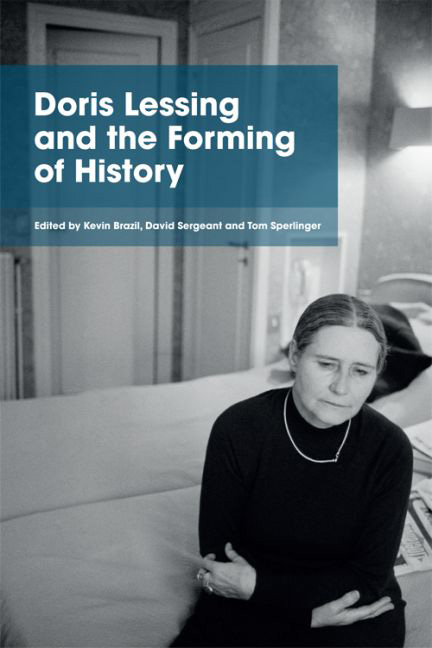Book contents
- Frontmatter
- Contents
- Acknowledgements
- Timeline
- Introduction
- 1 Early Lessing, Commitment, the World
- 2 ‘I'm an adolescent. And that's how I'm going to stay’: Lessing and Youth Culture 1956–1962
- 3 Sequence, Series and Character in Children of Violence
- 4 The Politics of Form: The Golden Notebook and Women's Radical Literary Tradition
- 5 Readers of Fiction and Readers in Fiction: Readership and The Golden Notebook
- 6 From The Grass is Singing to The Golden Notebook: Film, Literature and Psychoanalysis
- 7 ‘funny thing laughter, what's it for?’: Humour and Form in Lessing's Fiction,A
- 8 Lessing and the Scale of Environmental Crisis
- 9 Lessing and Time Travel
- 10 Lessing's Interruptions
- 11 Lessing's Witness Literature
- 12 A Catastrophic Universe: Lessing, Posthumanism and Deep History
- Select Bibliography
- Notes on Contributors
- Index
6 - From The Grass is Singing to The Golden Notebook: Film, Literature and Psychoanalysis
Published online by Cambridge University Press: 26 May 2017
- Frontmatter
- Contents
- Acknowledgements
- Timeline
- Introduction
- 1 Early Lessing, Commitment, the World
- 2 ‘I'm an adolescent. And that's how I'm going to stay’: Lessing and Youth Culture 1956–1962
- 3 Sequence, Series and Character in Children of Violence
- 4 The Politics of Form: The Golden Notebook and Women's Radical Literary Tradition
- 5 Readers of Fiction and Readers in Fiction: Readership and The Golden Notebook
- 6 From The Grass is Singing to The Golden Notebook: Film, Literature and Psychoanalysis
- 7 ‘funny thing laughter, what's it for?’: Humour and Form in Lessing's Fiction,A
- 8 Lessing and the Scale of Environmental Crisis
- 9 Lessing and Time Travel
- 10 Lessing's Interruptions
- 11 Lessing's Witness Literature
- 12 A Catastrophic Universe: Lessing, Posthumanism and Deep History
- Select Bibliography
- Notes on Contributors
- Index
Summary
The relationships between writers and the cinema in the twentieth century have received significant critical attention, but the work of Doris Lessing has not, to date, played a central role in explorations of this topic. Yet in a number of her works we can locate the multiple influences of cinema. As with many of her contemporaries, there is at times a perception of the threat which cinema represented to authors, competing for their readers as it turned them into spectators and, more dangerously, with the Hollywood machine imposing a restrictive set of narrative norms on authors. The cinema was, however, also a promise. The work of many writers, novelists and dramatists found new life on the screen through adaptation. The art of writing itself was, moreover, undoubtedly shaped and altered by the modes of representation which developed in the film medium, in ways which could be creative as well as restrictive.
In addition to questions of narrative in fiction and film, we find Lessing's complex representations of what I would term ‘the cinema mind’. This is connected, as in the work of many film theorists, to representations of collective and individual dreaming, an analysis underwritten by psychoanalytic theory's own engagements with the technologies of vision and models of perception. This chapter explores the meanings and representations of the cinema in these particular contexts, with a focus on two of Lessing's novels; The Grass is Singing (1950) and The Golden Notebook (1962).
Film and cinema play a significant role in The Grass is Singing, Lessing's first novel. This was begun in the mid-1940s, during the period of her marriage to Gottfried Lessing, when she was living and working in Salisbury, Southern Rhodesia, and was finally published in 1950, in a much shortened and revised form, after she had arrived in London. The novel tells the story of the ill-fated marriage of Mary, a woman in her thirties living and working in the city, who is impelled towards marriage to the farmer Dick Turner by her discomfort with her single status: he, in turn, is driven by loneliness and need. The narrative opens with a news report of Mary's murder by a black farm-servant: borrowing the model of the detective novel, The Grass is Singing begins with a corpse and a police investigation, and then retraces the events that have led to the crime.
- Type
- Chapter
- Information
- Doris Lessing and the Forming of History , pp. 84 - 96Publisher: Edinburgh University PressPrint publication year: 2016



